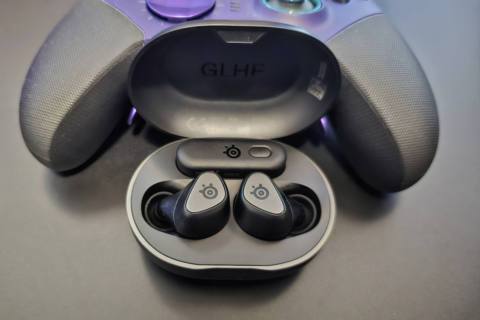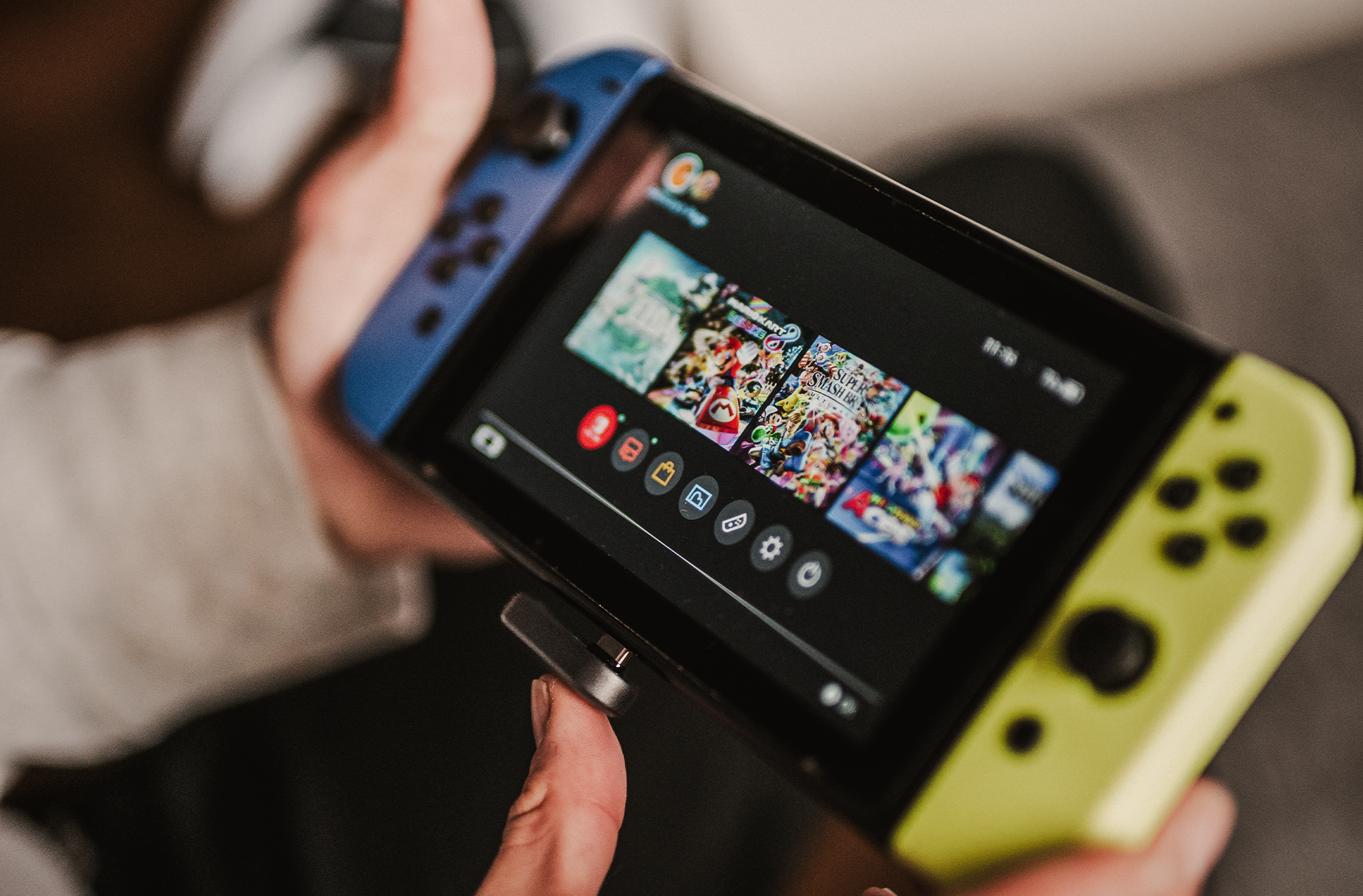
SteelSeries is attempting to cram some of the best qualities from its excellent gaming headsets into wireless gaming earbuds. The Arctis GameBuds offer punchy and accurate sound quality, but perhaps the biggest perk they have over the competition is their price. You should expect to pay up to $199.99 for competing models from the likes of Razer, Sony, or Logitech, but the GameBuds undercut them a bit at $159.99 while retaining many of the same premium features, such as noise cancellation and broad support for consoles and mobile devices.
The GameBuds are housed inside a pill-shaped case. It serves as a home for buds as well as a 2.4 GHz USB-C dongle that can be plugged into your device of choice. These are platform-agnostic, designed to be used with PC, Nintendo Switch, mobile devices that have a USB-C port, plus PC handhelds like the Steam Deck or ROG Ally. As for console compatibility, there are two different models: one that’s marketed to PlayStation users (with support for all of the platforms mentioned above), and another model that works with Xbox plus all of the aforementioned platforms.

The rounded-off shape of the GameBuds is similar to the Jabra Elite 4 earbuds, sitting almost flush with your ear when worn, without the usual microphone stem seen on models like the AirPods Pro or Razer Hammerhead Pro. Each earbud features a single, tactile button, which I’m happy to see since finicky touch controls are the preferred choice for many earbud models. However, the buttons were a bit too easy to press, and it seemed impossible not to accidentally press them while placing the earbuds in each ear.

SteelSeries plays up customization as being a big deal with the GameBuds, and configuring them can be done via the SteelSeries app on either desktop or mobile. Either option provides equalizer presets for over 100 games, including some recent hits like Helldivers 2 and Warhammer 40K: Space Marine 2, in addition to evergreen multiplayer games like Fortnite and Call of Duty: Warzone. The app can be configured to swap presets automatically whenever you start up a specific game or application, which is cool. However, this requires you to set up separate configurations for each of your individual games, and I didn’t find the results to be considerably better than the default preset. Unless you’re extremely particular about how a specific game should sound, making some minor adjustments to your default profile may suffice.

To that end, I was pleasantly surprised by how good the overall audio quality is, as well as how accurate the GameBuds are at picking up footstep and gunshot locations in-game. The audio fidelity of the GameBuds won’t have people upgrading over their audiophile-grade headsets, but for someone like myself who has a limited tolerance for wearing massive gaming headsets, the GameBuds are an excellent alternative.
The included silicone tips offer a good, comfortable seal. While the GameBuds’ design could make them a suitable set of earbuds to accompany you to the gym, the tips didn’t feel secure enough to be my default choice. That said, their IP55 water resistance is more than up to the task of handling a little sweat or moisture from a sprinkle. I like that these have a transparency mode that can improve spatial awareness during everyday activities, like commuting or walking outside.

The battery life for the GameBuds is good, but not great, which is to say it’s right on par for wireless gaming earbuds. These struggled to last a full eight-hour workday with noise-cancellation engaged during my testing. You can extend that out a bit by disabling this feature, but I’m not confident they can achieve the advertised 10 hours of playback (the case supports multiple recharges). I can live with subpar battery life, but something I wish these had were some kind of a low-battery warning. Then, I would have been able to charge them before they unceremoniously shut down in the middle of a match of Call of Duty: Black Ops 6.
While this relatively short battery life is pretty common among gaming earbuds, it’s disappointing to see in the otherwise great GameBuds. I still think their collection of features and digestible price point make them a solid option for anyone looking for a pair of platform-agnostic earbuds. However, if you need earbuds with all-day endurance, you’re better off turning your attention to a more generic model like the Sony WF-1000XM5 earbuds. And, for a more gamer-centric alternative, the Sony Inzone Buds offer superior battery life, noise cancellation, and other comparable features, albeit at a higher $199.99.
